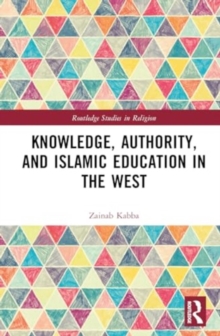
Freethought and Atheism in Central and Eastern Europe : The Development of Secularity and Non-Religion PDF
Edited by Tomas Bubik, Atko Remmel, David Vaclavik
Part of the Routledge Studies in Religion series
Description
This book provides the first comprehensive overview of atheism, secularity and non-religion in Central and Eastern Europe in the twentieth and twenty-first centuries.
In contrast to scholarship that has focused on the ‘decline of religion’ and secularization theory, the book builds upon recent trends to focus on the ‘rise of non-religion’ itself.
While the label of ‘post-communism’ might suggest a generalized perception of the region, this survey reveals that the precise developments in each country before, after and even during the communist era are surprisingly diverse.
A multinational team of contributors provide interdisciplinary case studies covering Estonia, Latvia, Lithuania, Russia, Ukraine, Poland, the Czech Republic, Slovakia, Hungary, Croatia, Romania and Bulgaria.
This approach utilises perspectives from social and intellectual history in combination with sociology of religion in order to cover the historical development of secularity and secular thought, complemented with sociological data.
The study is framed by methodological and analytical chapters.
Offering an important geographical perspective to the study of freethought, atheism, secularity and non-religion, this wide-ranging book will be of significant interest to scholars of twentieth-century social and intellectual history, sociology of religion and non-religion, cultural and religious studies, philosophy and theology.
Information
-
Download - Immediately Available
- Format:PDF
- Pages:346 pages, 2 Tables, black and white; 6 Illustrations, black and white
- Publisher:Taylor & Francis Ltd
- Publication Date:26/02/2020
- Category:
- ISBN:9781000039757
Information
-
Download - Immediately Available
- Format:PDF
- Pages:346 pages, 2 Tables, black and white; 6 Illustrations, black and white
- Publisher:Taylor & Francis Ltd
- Publication Date:26/02/2020
- Category:
- ISBN:9781000039757










